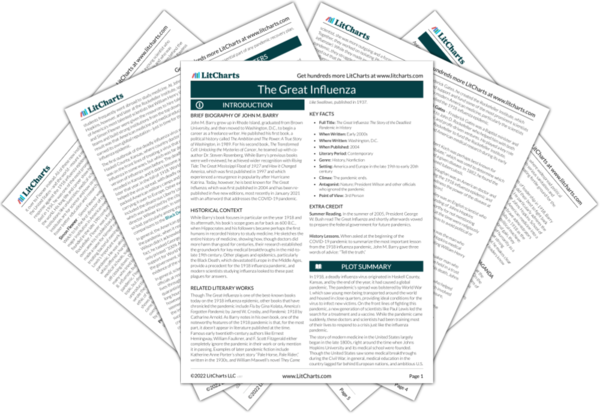During the early stages of the COVID-19 pandemic, some politicians and news outlets attempted to dismiss the disease as no worse than the flu. Barry implies a connection between these recent events and events that occurred in 1918, when many newspapers also dismissed a deadly virus as “only influenza.” He argues that whether it’s 1918 or 2020, it's better to look directly at the threat a pandemic poses, even if it’s unpleasant.
